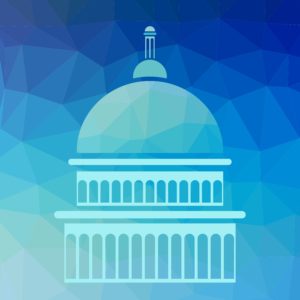• IDRA Newsletter • September 2020 •


Respond Equitably to COVID-19
- Use new funding sources and emergency aid, including federal relief funds and “rainy day” funds, to address new COVID-19-related costs and revenue shortfalls in schools.
- Do not cut state funding to schools as this will have a disproportionate effect on poorer school districts that rely more on state funds and are less able to generate sufficient local dollars by taxing their residents to fill funding gaps. Funding for programs that serve English learners, students from families with limited incomes, and students of color must especially be preserved to ensure equitable educational opportunity.
- Invest additional resources in the digital infrastructure to increase access to remote learning for rural students and families with limited economic resources.
Ensure Fair Funding for All Schools
- Determine the current costs of programs and fund them accordingly to serve English learners and students in families with low incomes.
End Harmful Discipline and Policing to Create Safe Schools for All Students
- Remove police from school buildings; end harmful and ineffective discipline practices like corporal punishment; and eliminate vague and discriminatory codes of conduct provisions and punishment (like for hair and dress).
- Prohibit criminalization of youth and families for pandemic-related behavior, including truancy for lack of digital engagement in remote instruction; assault for coughing or sneezing on other students; and suspension or expulsion from academic instruction based on attire or items in the home.
Ensure Excellent Educational Opportunities for English Learners
- Improve opportunities for English learners in early childhood programs by supporting quality bilingual education in early childhood programs and throughout the PK-12 pipeline; by reducing barriers to preparation programs and certification for quality bilingual education educators to teach; and by promoting transparent and consistent data monitoring for English learner success.
- Increase funding for the paraprofessional pipeline and grow-your-own programs to encourage people to become bilingual education teachers in their communities.
Prepare All Students to Succeed in College
- Strengthen student college preparation and, in the absence of statewide assessments or graduation exams, state and local education agencies must ensure that student preparedness for college is evaluated and disparities are monitored.
- Support college affordability and accessibility by reducing student loan debt burden and by promoting and protecting in-state tuition and aid eligibility for undocumented students.
Grow and Sustain Healthy School Districts
- Provide funding and training to school districts to adopt teaching and learning assessment systems that are non-punitive and that identify and respond to growth and learning over time. These systems should include individualized, portfolio-based formative assessments, combined with testing of small but representative samples of the districts’ student population.
- Incentivize and support the large-scale adoption of ethnic studies courses and culturally-sustaining curricula in schools.
Keep the Public in Public Schools
- End the expansion of charter schools and hold charter schools to the same accountability standards as public schools in achievement, expenditures, student progress and enrollment.
- Ensure COVID-19 emergency relief funds and other public monies are not used to support small group learning pods, individual voucher programs, or large-scale virtual learning programs that pull students, families and resources away from traditional public schools that serve most students.
[©2020, IDRA. This article originally appeared in the September 2020 IDRA Newsletter by the Intercultural Development Research Association. Permission to reproduce this article is granted provided the article is reprinted in its entirety and proper credit is given to IDRA and the author.]


